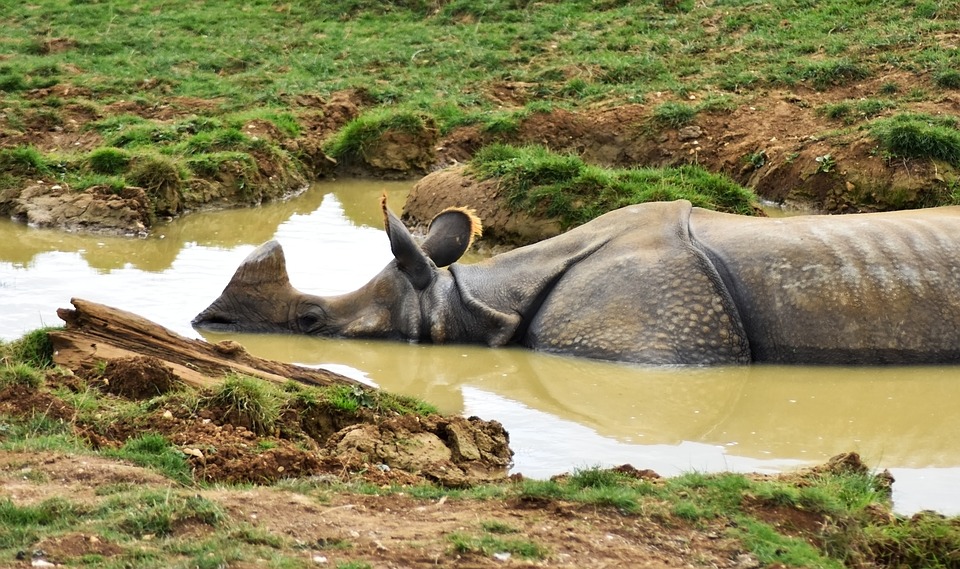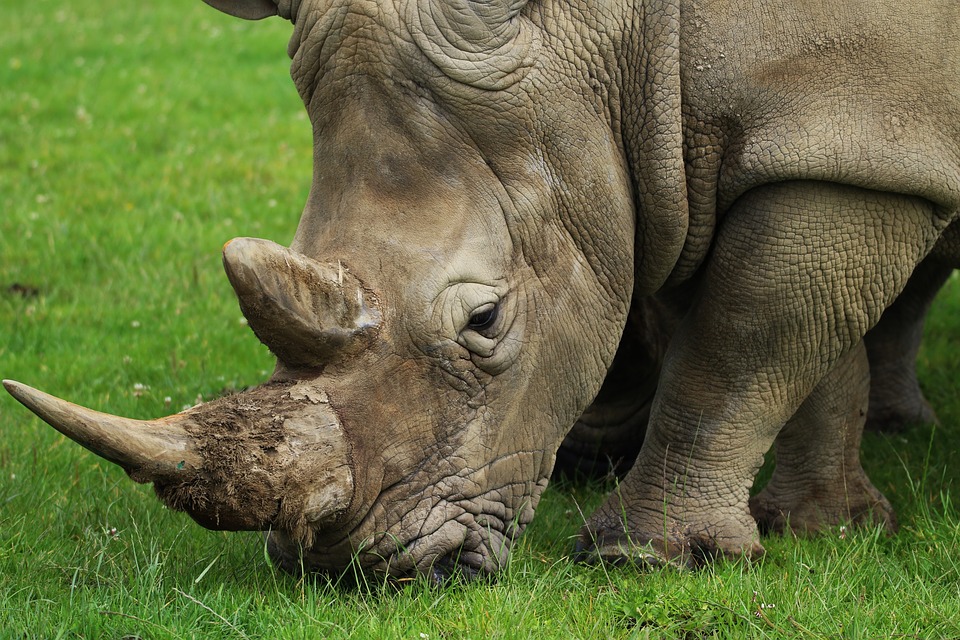What is Rhinoceros Poaching?
Rhinoceros poaching is the illegal practice of killing rhinoceros to meet the high demands for their horns in Asian countries. Most of the poaching happens in South Africa, which is home to more than 80 percent of Africa’s rhinoceros and makes up to almost ¾ of the world’s wild rhinoceros’ population.
How Is a Rhinoceros Poached?
Generally, poachers make use of a tranquilizer gun to bring the animal down before they hack off the horns. The rhinoceros then wakes up and slowly bleeds to death. In other cases, poachers shoot the rhinoceros to the head, chest, and legs to immobilize the animal before roughly taking off its horns using an ax. Nowadays, poachers also have various sophisticated equipment to track and dehorn rhinoceros. For example, the animal is often darted with lethal drugs. In situations where the drug dosage is too low, the rhinoceros wakes up during the brutal removal of its horns using a chainsaw.
Why Are Rhinoceros Poached?
The main reason for poaching is money. Most poachers are from poor regions of Africa or Asia who are ready to go against the laws for some cash. For instance, in Mozambique, rhinoceros poaching is viewed as a moneymaking opportunity by many. A poacher receives about $5000 for a horn, which is a remarkable amount in an economy like Mozambique.

Others poach to have the horn as a trophy. These often include professional hunters who love to display the horns or even the dead animal as an emblem of their prowess. Rhinoceros horns are also used in Chinese medicines since it is believed to treat fever, gout, rheumatism, snake bites, headaches, vomiting, hallucinations, and other disorders and diseases. Lastly, in Vietnam, it is touted as a hangover cure and a treatment for terminal illnesses.
However, contrary to these widespread beliefs, the rhinoceros horn has no proven medical properties since they consist of keratin, the same protein that makes up human nails and hair.
The rise of rhinoceros poaching has drastic effects on the wildlife population, the environment, and even local communities. Here are some devastating effects that are caused by rhinoceros poaching.
1) Extinction
Extinction is the greatest threat that poached animals, including rhinoceros, face. With more than a thousand rhinoceros slaughtered each year for their horns, many species have become critically endangered and face a high risk of extinction. The current surge of poached rhinoceros also means that very few rhinoceros survive outside national parks and reserves.
2) Negative Impact on the Tourism Industry
The poaching of rhinoceros can have a significant effect on communities that rely on wildlife for tourist attraction. Not only does the place become less attractive to tourists, but it also elevates the likelihood of the tourism boycott. The potential tourist destinations face boycotts since they engage in horrendous acts, including rhinoceros poaching, which are generally viewed as unacceptable. This results in severe financial effects such as unemployment and revenue losses within the tourism industry of the country.
3) a Threat to People’s Lives
Poachers are often armed with guns and other dangerous weapons, making them a menace to anti-poaching teams who put their lives at risk to protect the rhinoceros. Driven by poverty and hunger, many poachers in underdeveloped countries are so desperate that they are willing to risk the severe consequences of being caught for poaching, even if they receive the smallest portion of the profit. For instance, they may have to pay for a huge sum as fine and also face years of imprisonment.

4) a Threat to the Environment
Rhinoceros are also crucial for the environment. Since rhinoceros are herbivores, they help to maintain the ecosystem. They selectively eat certain types of plants over others, which helps to increase biodiversity and ensures natural sustainability for all life forms. With the continuous poaching, rhinoceros might be extinct, which can result in the overgrowth of certain plant species, threatening other living things in the process.
5) Impacts the Cultural Sphere
The negative consequences of poaching also extend to the cultural sphere. Some fear that the extinction of rhinoceros will rob the chance of future generations to experience wildlife. Rhinoceros poaching comes off as a form of cultural victimization for those who believe that wildlife forms part of their identity and hence depriving them of their rightful cultural heritage.
Despite various improved security measures and conservation efforts, the rhinoceros’ population is still at risk of being reversed through poaching. To prevent this, we should support anti-poaching actions, increase security, law enforcement, and public awareness regarding poaching. These measures can help in curbing the demand for rhinoceros’ horns in other countries and hopefully protect these animals.
What are your thoughts about rhinoceros poaching, and how do you think we can stop it? Let us know in the comments below!
